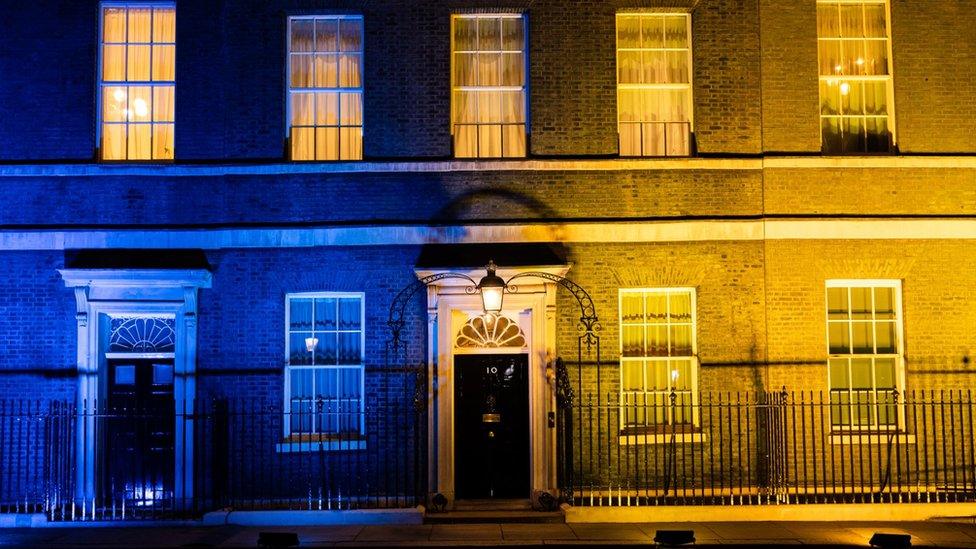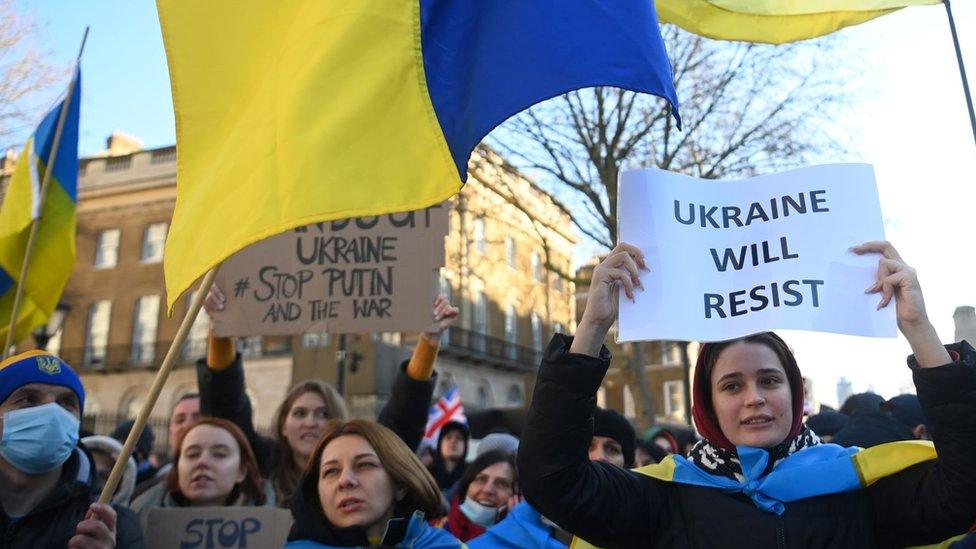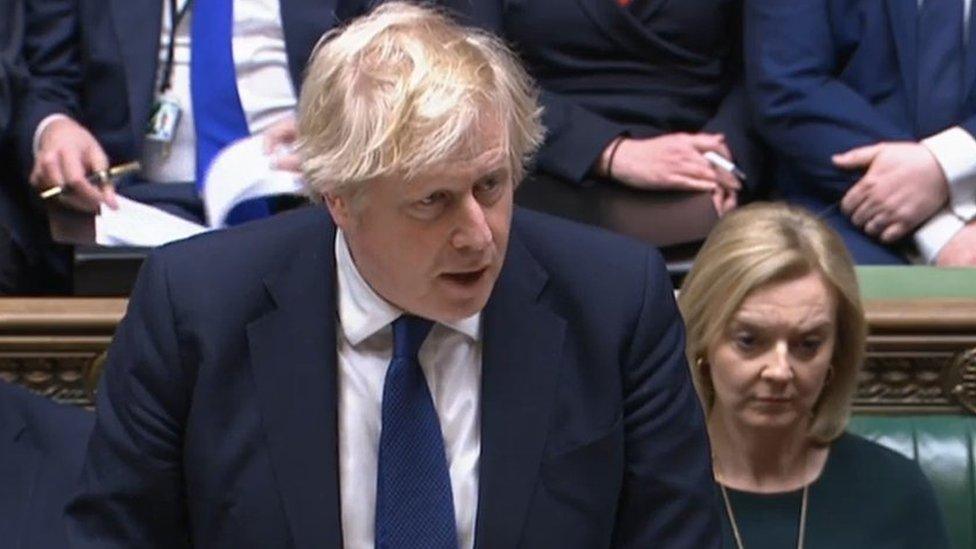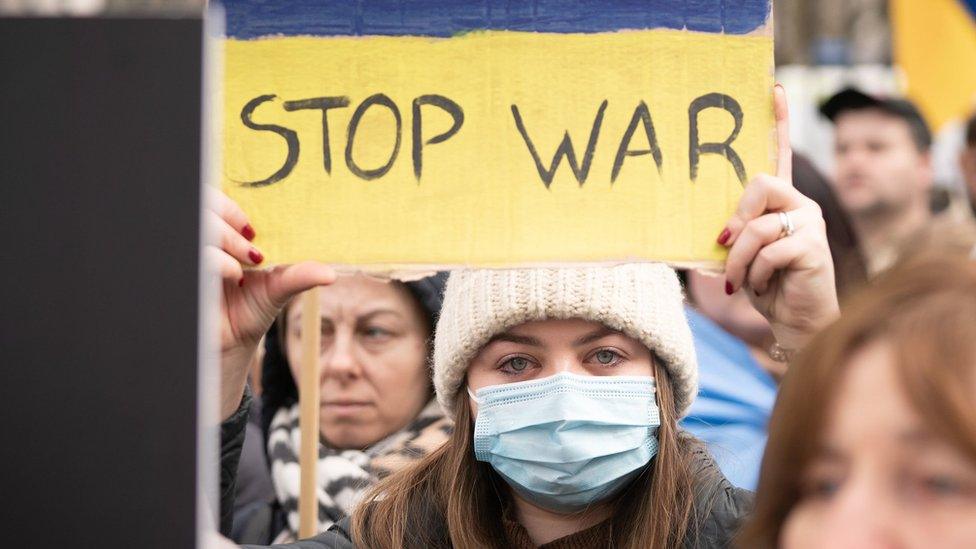Ukraine invasion: Ministers braced for 'long and serious' conflict
- Published

Downing Street was illuminated in yellow and blue on Thursday in symbolic support of Ukraine
War in Europe. Despite all the warnings, all the prime minister's war-era warnings at the weekend, all the distressing images emerging from Ukraine - that is still a sentence that's surreal to write in the UK in the 2020s.
Politicians here are universally horrified by what they see. They are vowing to stick together.
Disagreements over the approach to take towards the Russian aggression are largely only over the scale and pace of the response, not the overall approach.
There is also a grisly acceptance that the UK's chosen approach to confronting Vladimir Putin will not immediately make that much difference.
The Russian leader knew there would be sanctions if he invaded. And it happened anyway.
So the application of those sanctions will not put brakes on the tanks as they roll on.
The prognosis is not certain, but sources briefed on UK intelligence say it's not unlikely that the Russians may be able to overwhelm the Ukrainian forces soon - with "ominous assessments" given to the cabinet on Thursday night.
The likely short-term outcome therefore is Russia messily occupying the country, with a dogged Ukrainian insurgency and the West's sanctions surely - but slowly - squeezing Russia's economy.
One minister told me that we are therefore in for a "long and serious" conflict. Foreign Secretary Liz Truss is understood to hold this view too.
Shaking the stable order
And just as no one expects the conflict to be over soon, no one expects its effects to be here and then gone.
For our politicians - the prime minister and of course his counterparts around the West - the challenge is so huge.
They are the first political generation in decades to have to grapple with a war of this nature in our continent.

UK intelligence fears Russia may overwhelm Ukraine soon - but the conflict could last much longer
Their adversary is unpredictable and they don't have easy answers, not least because the UK and its allies have no intention of putting their own boots on the ground.
The West wants to fight Mr Putin's real weapons with economic ones - it is a not a symmetrical fight. And for all of us, it shakes the stable order we have, broadly speaking, lived with for decades.
This changes the political atmosphere, and the backdrop against which the government makes all sorts of decisions on our behalf.
A battle for ideas
In really practical terms too this conflict is at once a thousand miles away and right here.
We will all feel it, in the price of petrol at the pump, even the cost of a loaf of bread. The price of oil, the price of wheat, the effect on the financial markets that feed through to our pensions, our pay.
Inflation is already running hot. Money is stretching less far.
Our economy's still recovering from the battering of another shock, a global pandemic. This conflict might slam the brakes on the journey out of that.
The events of the last 24 hours are evidence of the real fight some in the West have long feared may come.
A battle for ideas, played out in real life that others perhaps wished would never come.
But it's here now. Downing Street was bathed last night in the yellow and blue light of the Ukrainian flag.
It was a display of the UK's genuine wish to show support to Ukraine.
The UK's politicians are unusually united in the need to stand completely firm.
But few in Westminster can hope the UK's actions can bring an end quickly to what's happening.
Symbols and sanctions may not be enough to make Mr Putin stop.
Related topics
- Published24 February 2022

- Published7 March 2022

- Published24 February 2022

